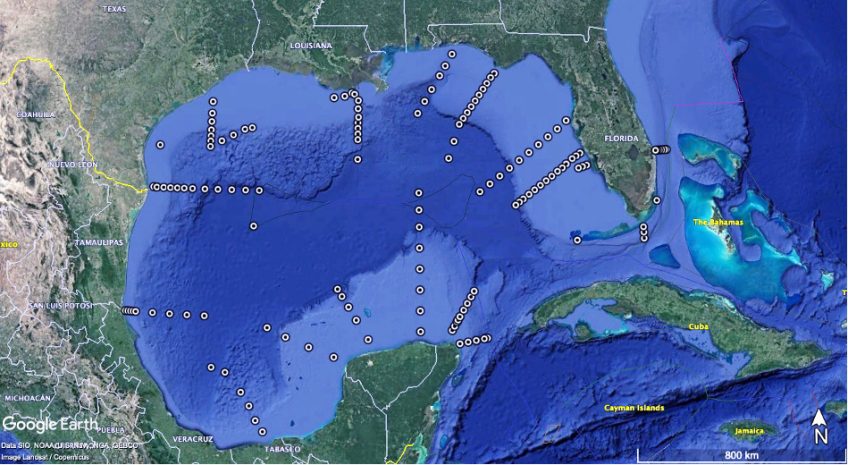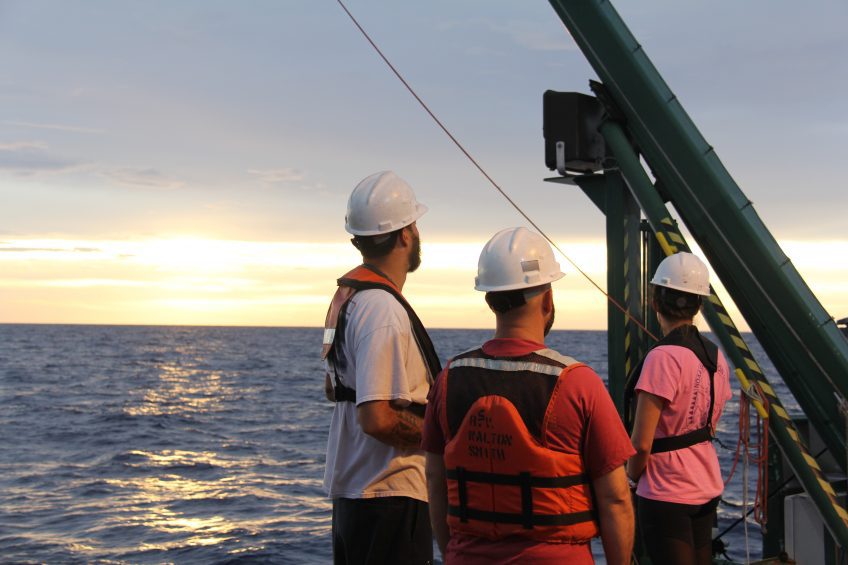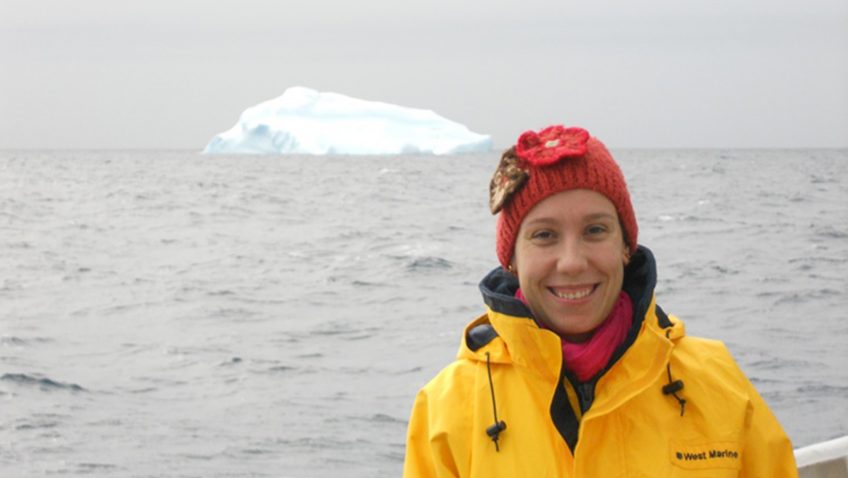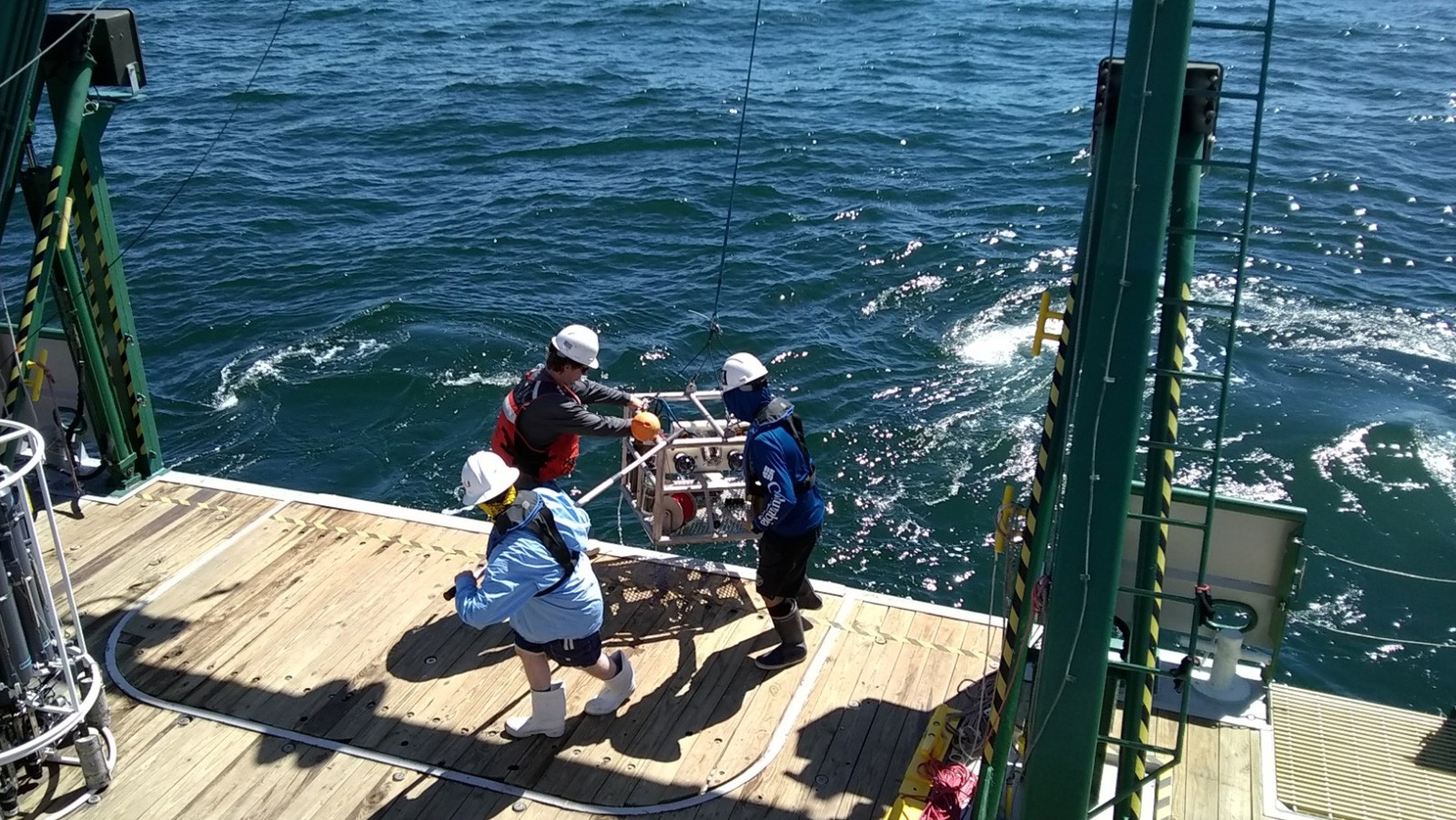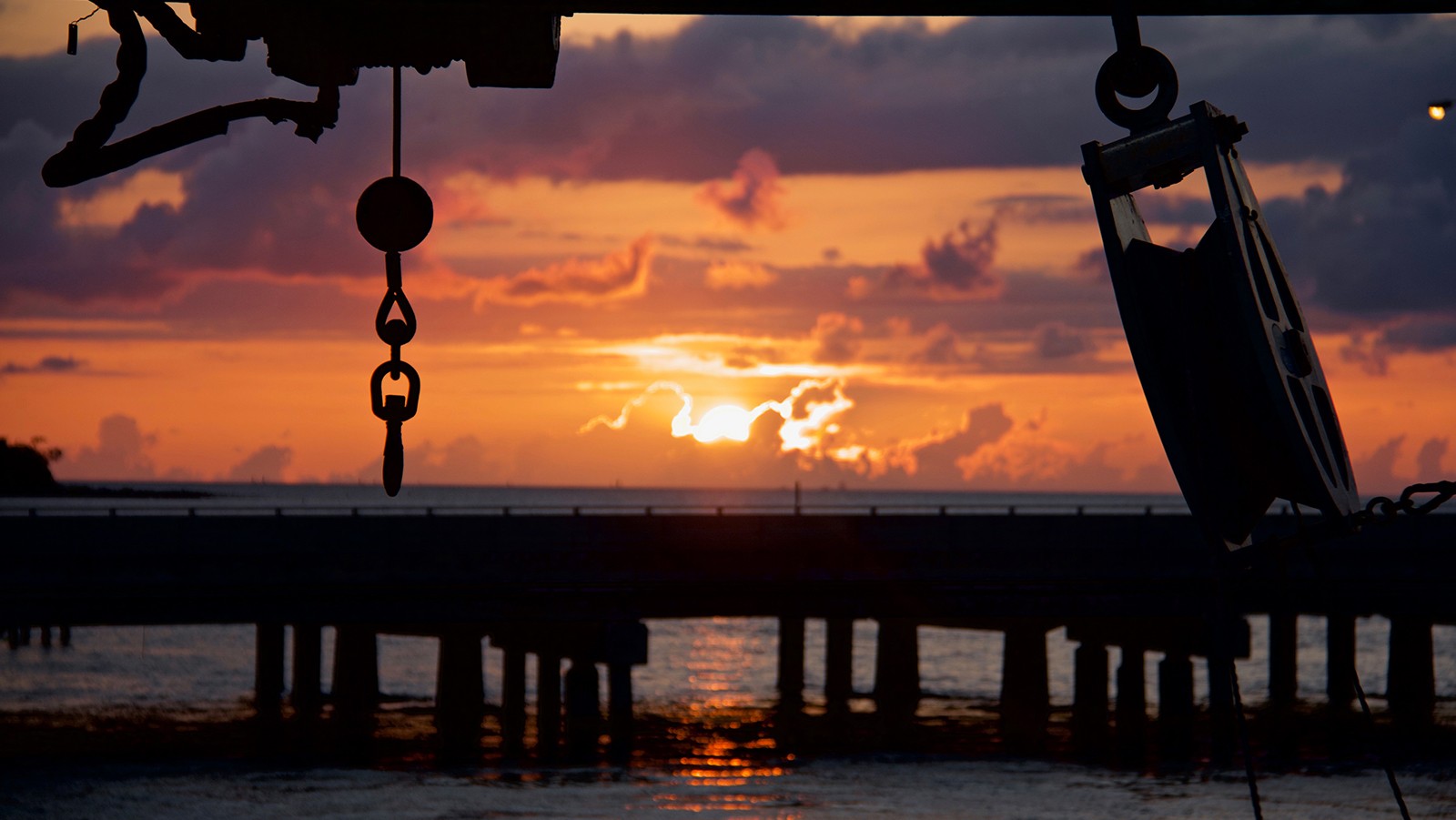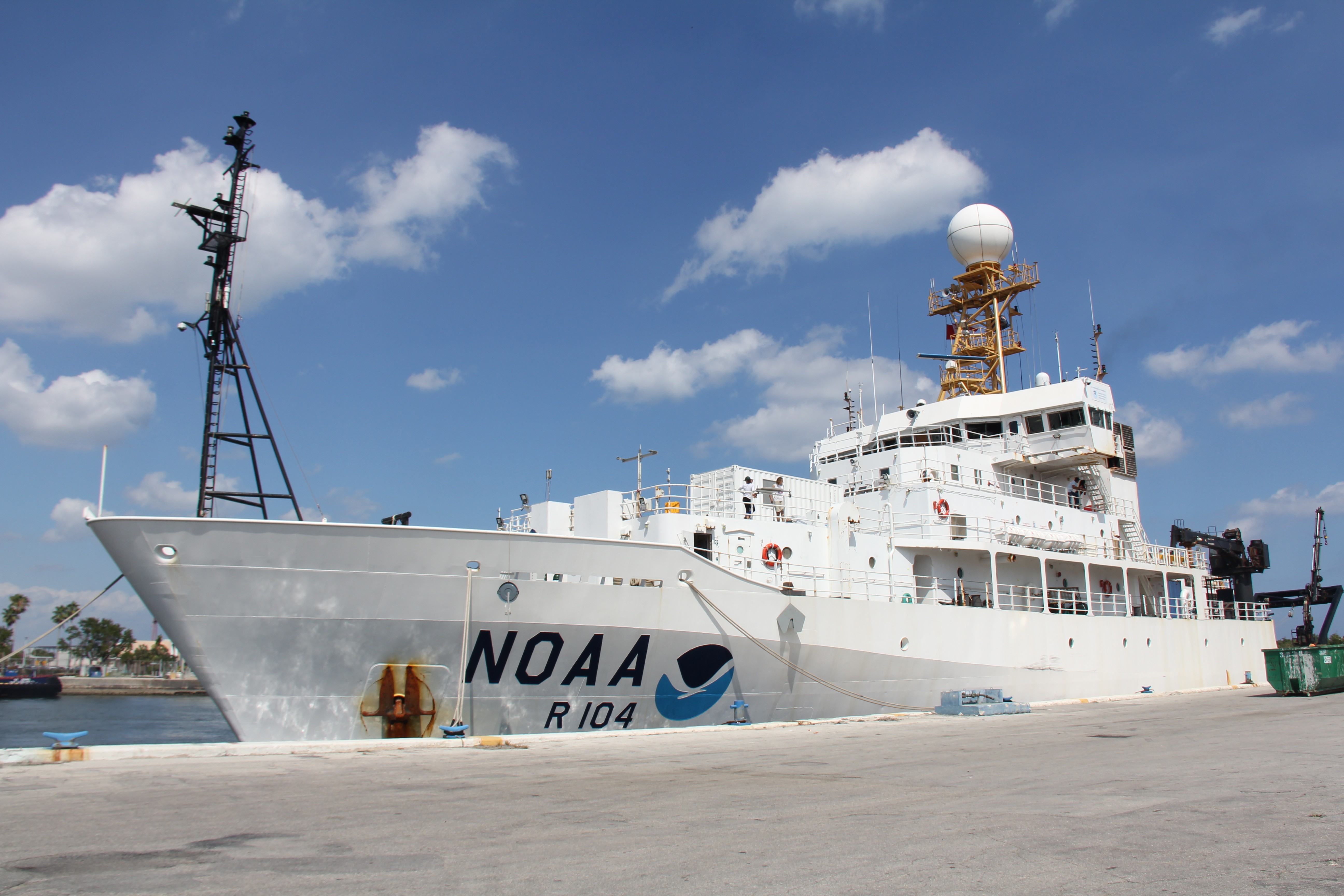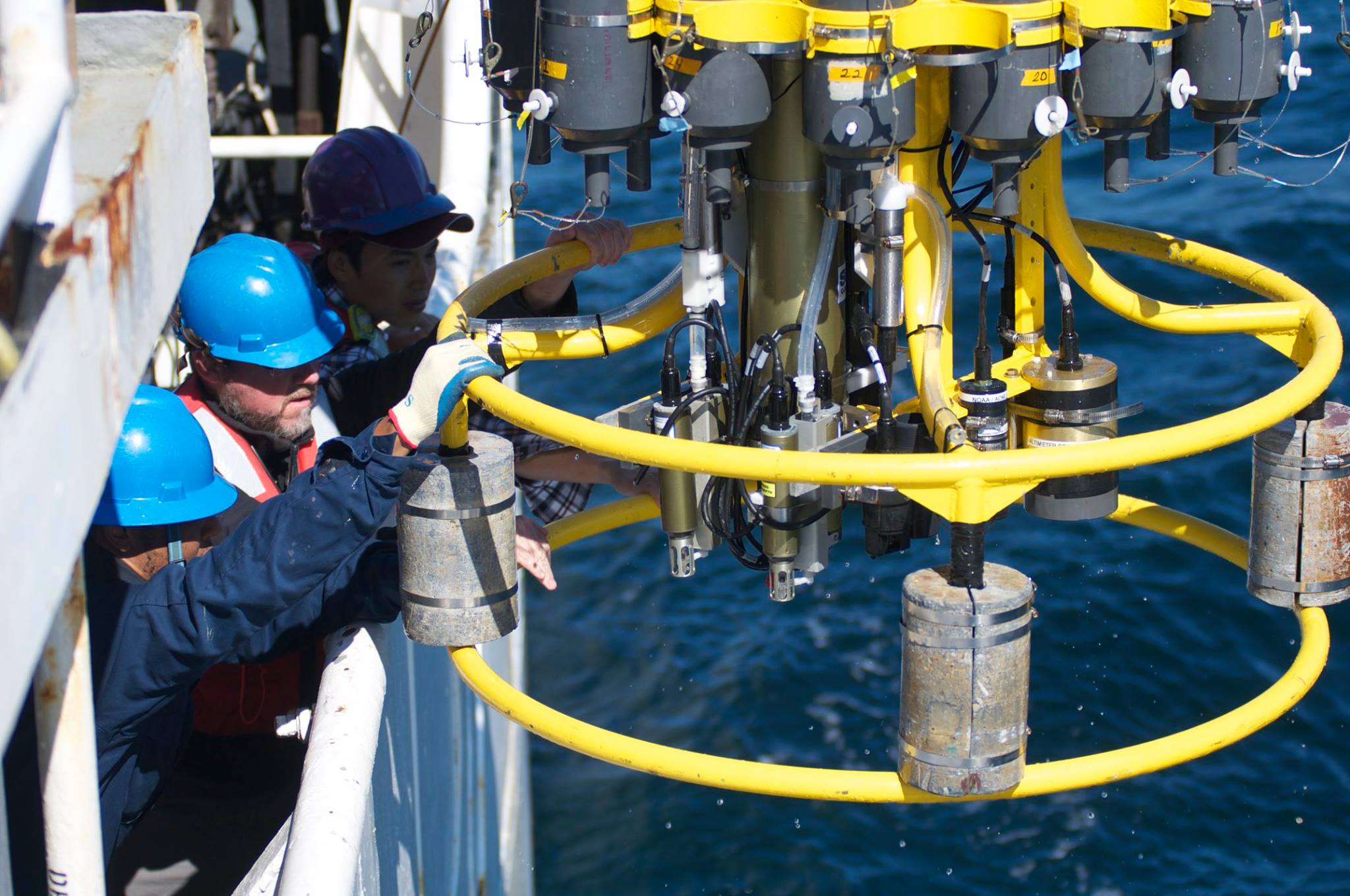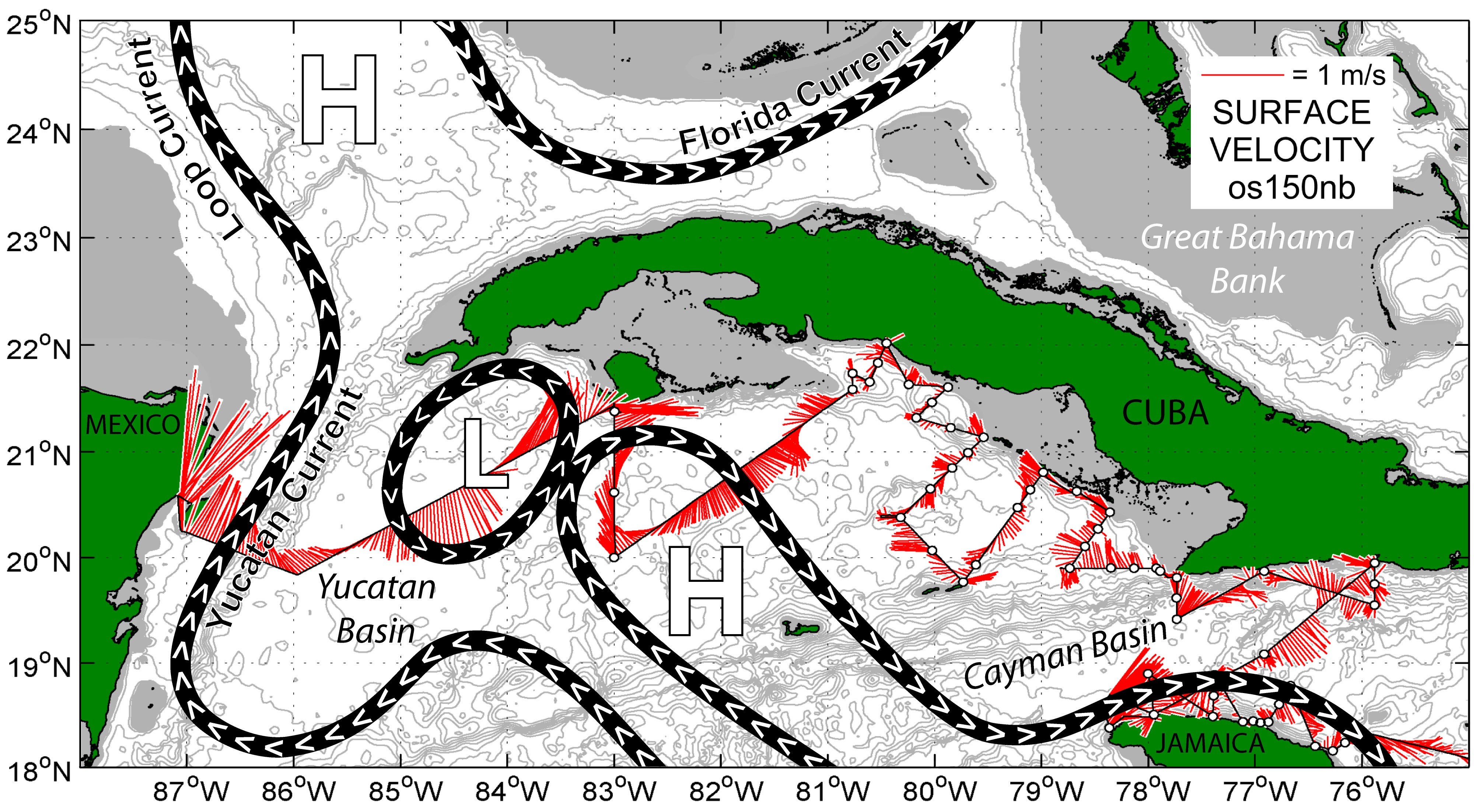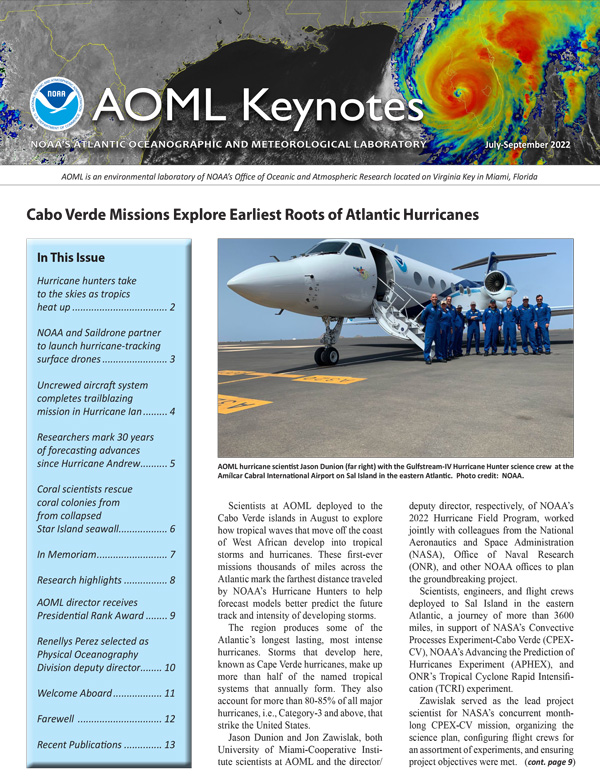GOMECC-4 Cruise Assesses Ocean Acidification Impacts in the Gulf of Mexico
AOML scientists and partners from an assortment of universities and Cooperative Institutes successfully completed the most comprehensive ocean acidification sampling of the Gulf of Mexico to date with the conclusion of the fourth Gulf of Mexico Ecosystems and Carbon Cruise, also known as the GOMECC-4 cruise. The research effort aboard the NOAA Ship Ronald H. Brown began out of Key West, Florida on September 13, 2021 with 25 scientists and graduate students aboard. It ended 39 days later on October 21 with a port stop in St. Petersburg, Florida.
